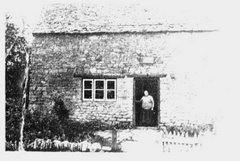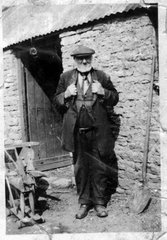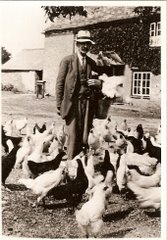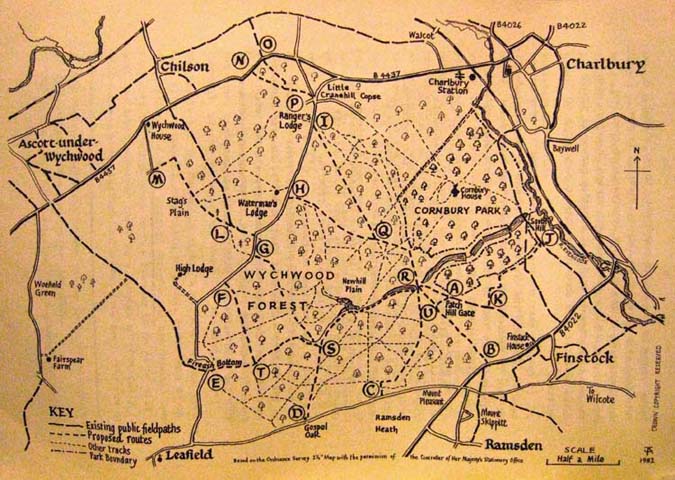From Chris Hall, convenor, Oxfordshire Local History Liaison Group (OHLG)
Oxfordshire Studies (formerly Centre for Oxfordshire Studies) at risk
This message is addressed to all local history societies (for which I have e-mail addresses and various other persons) likely to be interested.
As you will know, if you have read page 3 of last week's Oxford Times or pp 4 and 5 of Oxfordshire Local History News, a serious threat to the integrity and efficacy of Oxfordshire Studies (the service we perhaps know better by its old name as the Centre for Oxfordshire Studies) now exists.
OHLG was set up in March to counter this threat. It is an informal ad hoc group consisting of the Oxford Civic Society, Oxford Preservation Trust, Oxfordshire Architectural & Historical Society, Oxfordshire Family History Society, Oxfordshire Local History Association and Oxfordshire Record Society.
On Tuesday 17 April the so-called cabinet of Oxfordshire County Council meets and will (among much else) receive a paper from the officers which will in effect set in train the downgrading of Oxfordshire Studies (OxS). We are asking you to take immediate action to prevent this.
Background
The background is that the Westgate shopping centre is being reconstructed by a property development company, to which OCC is in process of selling the north end of its building in Westgate. This section of the building contains part of Oxfordshire Studies and various other services. In return for the north end of the building, which will become retail, the developer will bear most of the cost of 'refurbishing' the central library and Oxfordshire Studies. Users have not been consulted about this, despite our repeated requests, but we learn that the library will lose about a tenth of its present space, while Oxfordshire Studies will lose about half.
The county's Sites & Monuments Record (SMR) currently and conveniently housed adjacent to Oxfordshire Studies will be shifted to Speedwell House, several streets away.
The spatial implications for OxS are bad. The plans we have been able to glean mean that OxS will have far less behind-the-scenes working space. This is the part we users don't see. But OxS staff, when not at the enquiry/reception desk, have cataloguing, digitising, accessioning and conservation work to get through. Because of decades of understaffing, much of this work is badly behind, yet OCC appear to have taken no thought for how and where it is to be done in future.
The security of the OxS material and collections will also suffer. The new library, into which OxS is to be integrated will be without internal barriers or checkpoints, and it will also be without the lockers in which users spending an hour or two at a desk can safely stow personal gear.
An end to independence
But the worst feature of the scheme is the end of OxS as an independent specialist service staffed by specialists with the appropriate knowledge to help and guide local and family historians in their research. I have worked in OxS since 1994 on various projects. I vividly recall how readily. when I was new to it, the staff there answered what I would now think were foolish questions. (I dedicated my dissertation to them.) I imagine that many local historians and genealogists in the county must have had similar experiences.
In future, if the OCC's plans go ahead, there will be no information desk staffed solely by local-history specialists. The job will be shared with non-specialist librarians. At the same time the work of this desk will be made to include answering queries about and issuing non-fiction books brought upstairs from the shrunken main library. Moreover OxS will be open six days a week for the same hours as the central library. Excellent news you may think, but the staff of OxS is not be increased to cope with the new hours so there will effectively be a dilution of the service they can give. The responsible OCC officer, Richard Munro, Head of Cultural and Adult Learning services, expects that 'many more members of the public will be attracted to find out about the history of their county and families as a result of the service being more visible'. (See his letter on p 4 of Oxfordshire History Local News Spring 2007). This is an extraordinary statement. First, because there is nothing invisible about OxS now. (There is a large sign on the front of the building and potetnial users are directed from the ground to the second floor.) Second, because if there are to be more visitors, the service will need more staff and there are not to be.
This process of integration is driven, we believe, by a modish conception of the library service, namely that the role of specialists is downplayed (or even abolished), because it is seen as elitist. This can only be harmful for OxS.
The tremendous work Malcolm Graham and his colleagues have done in the last decade and a half is to be wasted. The assurance given by county officials that 'there will be no diminution in the quality of service' is frankly unbelievable.
Action by you
There are two things you and your society can do immediately in order to help fight these very damaging proposals.
1. Please try to have someone from your society attend the OCC cabinet meeting tomorrow when Paul Bettridge will briefly address the cabinet, on behalf of the liaison group, before it considers the paper referred to above. This will be shortly after 3.30 pm. I apologise for the short notice but we have only been given the time when the item will be discussed this afternoon (Mon). Paul will do the best he can with the three minutes allotted to him, but a show of public interest greatly helps. You don't have to stay after the cabinet discussion of the item is finished (app 4 pm).
The cabinet meeting is in County Hall. (Park & Ride bus routes nos 300 and 400 stop close by.)
2. Within the next few days write to your county councillor (listed with addresses and e-mails on OCC website), express your concern and urge him or her to look critically into what is proposed what is proposed.
Thank you very much.
Chris Hall
Chairman Oxfordshire Local History ASssociation and convener Oxfordshire History Liaison Group.
The Plough story
by Shaun
The Plough Inn, situated in The Bottom is a Grade II listed building. It bears the date 1772 inscribed in the keystone of the voussoirs lintel above the entrance door. The building was originally a house of modest proportions with a two-room plan and central through passage, probably built for a husbandman (small farmer). The left hand room has an inglenook fireplace and the building was extended substantially in the late 18th or early 19th century and again in the 20th century. If the date-stone is correct, within five years of being built it was being used an alehouse. Jackson’s Oxford Journal reports that on 27th September 1777 there was a sale by auction at the Plough of Home Farm. William Harris was the proprietor.
The Victoria County History of Oxfordshire states “the Plough … was probably one of the two premises licensed in Finstock in 1780”. Until the enclosure of land, which came very late to Finstock in 1861, substantial parts of the village were held by the Manor of Charlbury, which in turn was owned by St John’s College, Oxford. In the 1786 Land Tax assessment William Harris was assessed at £1, being shown as an occupier. He is also appears in the 1799 Terrier of the Vicarage of Charlbury (a record of manorial land holding).
A series of records from the Court Baron of Charlbury Manor reveal a series of tenants held the Plough and adjacent land by Copyhold, or customary tenure in the early 19th century. Copies of these can be seen displayed on the walls of the Plough.
On 23rd April 1821 St John’s College sold the Plough to William Hall, esquire of the City of Oxford. He had purchased the Swan’s nest Brewery, later the Swan Brewery and The Plough was acquired as a tied house. Henry Hall succeeded William as proprietor of the Swan Brewery in 1837 and it was not until 1896 that the brewery became a company, known as Halls Oxford Brewery Ltd. Halls was taken over by Allsopps in1926, and further consolidation through Ind Coope and Allied Breweries took place. Although the Halls name survived for many years, brewing moved from Oxford to Burton-upon-Trent. In the 1970’s the Plough was sold into private hands where it remains today.
The 19th century history was dominated by two publicans. Alfred Eeles, born in Leafield in 1817, became landlord in c. 1840 aged just 23 and remained the innkeeper at the Plough until 1874. He also ran a grocer shop in High Street to where he moved. Ann Archer, at 34 years old was publican the Plough on his behalf in 1871 and after her marriage just three years later her husband Jason Bowerman took over. However, both Alfred Eeles and Jason Bowerman died just a few years later leaving Ann to take on the role of licensed victualler again. She remarried in 1883 to Lewis Pratley, a retired Police Constable but her death in 1897 ended a 26-year association with the Plough.
In 1863 the Finstock Independent Benefit Friendly Society was formed with the registered office at The Plough Inn. It initially had 41 members rising to 72 in 1874. Membership fell back to around 42 when a Methodist based society was formed in the village in 1883 and membership remained constant until it was dissolved in 1911. Monthly meetings were held at The Plough representing the clubhouse where members were required to pay their dues and purchase a set amount of beer from the landlord. An annual club day and feast was held on Ascension Day with festivities commencing with a church service and march round the village for all members, led by a Brass Band. A dinner was then held in a barn next to The Plough, since demolished. The afternoon saw festivities that included various stalls and entertainment. Copious amounts of alcohol was drunk by all throughout the day, often marred by unseemly behaviour.
The 20th century saw Walter Benfield in charge for the first two decades, with the Langford family through Albert, Harold and Sidney for four decades.
Dates Victualler, Innkeeper or publican
1777 - 1799 William Harris
Margaret Bowerman
Before April 1804 Richard Cooper
April 1804 John Stayt of Bledington, Glos.
April 1805 George Watson
July 1808 Thomas Davis of Milton-under-Wychwood, a maltster
March 1812 Isaac Newton Lawrence of Witney, a brewer
23rd April 1821 Owned by William Hall
9th May 1824 Thomas Johnson, owned by Esquire Hall
1839 John Hawkins, owned by Esquire Hall
1841 - 1874 Alfred Eeles
1871 Ann Archer
1874 -1880 Jason Bowerman, and Ann (nee Archer)
1880 - 1883 Ann Bowerman (widow)
1883 - 1897 Lewis Pratley, and Ann (nee Bowerman)
1899 - 1920 Walter Benfield Victualler
1931 - 1939 Albert Langford
1939 - 1953 Harold Langford and others
1953 – 1975? Sidney Langford
1967 - 1982 Philip Cooper
1982 Dave Keetch
1983 Mike Clarges
1984 John Lambert
1985 ? Moffatt
1986 - 1996 John and Val Baxter
1996 to Nov. 2004 Keith and Nigel Ewers
Nov. 2004 to Nov. 2005 Darrell Lord and Louis Burridge
Nov. 2005 to present Joe McCorry and Martin Range
The Plough Inn, situated in The Bottom is a Grade II listed building. It bears the date 1772 inscribed in the keystone of the voussoirs lintel above the entrance door. The building was originally a house of modest proportions with a two-room plan and central through passage, probably built for a husbandman (small farmer). The left hand room has an inglenook fireplace and the building was extended substantially in the late 18th or early 19th century and again in the 20th century. If the date-stone is correct, within five years of being built it was being used an alehouse. Jackson’s Oxford Journal reports that on 27th September 1777 there was a sale by auction at the Plough of Home Farm. William Harris was the proprietor.
The Victoria County History of Oxfordshire states “the Plough … was probably one of the two premises licensed in Finstock in 1780”. Until the enclosure of land, which came very late to Finstock in 1861, substantial parts of the village were held by the Manor of Charlbury, which in turn was owned by St John’s College, Oxford. In the 1786 Land Tax assessment William Harris was assessed at £1, being shown as an occupier. He is also appears in the 1799 Terrier of the Vicarage of Charlbury (a record of manorial land holding).
A series of records from the Court Baron of Charlbury Manor reveal a series of tenants held the Plough and adjacent land by Copyhold, or customary tenure in the early 19th century. Copies of these can be seen displayed on the walls of the Plough.
On 23rd April 1821 St John’s College sold the Plough to William Hall, esquire of the City of Oxford. He had purchased the Swan’s nest Brewery, later the Swan Brewery and The Plough was acquired as a tied house. Henry Hall succeeded William as proprietor of the Swan Brewery in 1837 and it was not until 1896 that the brewery became a company, known as Halls Oxford Brewery Ltd. Halls was taken over by Allsopps in1926, and further consolidation through Ind Coope and Allied Breweries took place. Although the Halls name survived for many years, brewing moved from Oxford to Burton-upon-Trent. In the 1970’s the Plough was sold into private hands where it remains today.
The 19th century history was dominated by two publicans. Alfred Eeles, born in Leafield in 1817, became landlord in c. 1840 aged just 23 and remained the innkeeper at the Plough until 1874. He also ran a grocer shop in High Street to where he moved. Ann Archer, at 34 years old was publican the Plough on his behalf in 1871 and after her marriage just three years later her husband Jason Bowerman took over. However, both Alfred Eeles and Jason Bowerman died just a few years later leaving Ann to take on the role of licensed victualler again. She remarried in 1883 to Lewis Pratley, a retired Police Constable but her death in 1897 ended a 26-year association with the Plough.
In 1863 the Finstock Independent Benefit Friendly Society was formed with the registered office at The Plough Inn. It initially had 41 members rising to 72 in 1874. Membership fell back to around 42 when a Methodist based society was formed in the village in 1883 and membership remained constant until it was dissolved in 1911. Monthly meetings were held at The Plough representing the clubhouse where members were required to pay their dues and purchase a set amount of beer from the landlord. An annual club day and feast was held on Ascension Day with festivities commencing with a church service and march round the village for all members, led by a Brass Band. A dinner was then held in a barn next to The Plough, since demolished. The afternoon saw festivities that included various stalls and entertainment. Copious amounts of alcohol was drunk by all throughout the day, often marred by unseemly behaviour.
The 20th century saw Walter Benfield in charge for the first two decades, with the Langford family through Albert, Harold and Sidney for four decades.
Dates Victualler, Innkeeper or publican
1777 - 1799 William Harris
Margaret Bowerman
Before April 1804 Richard Cooper
April 1804 John Stayt of Bledington, Glos.
April 1805 George Watson
July 1808 Thomas Davis of Milton-under-Wychwood, a maltster
March 1812 Isaac Newton Lawrence of Witney, a brewer
23rd April 1821 Owned by William Hall
9th May 1824 Thomas Johnson, owned by Esquire Hall
1839 John Hawkins, owned by Esquire Hall
1841 - 1874 Alfred Eeles
1871 Ann Archer
1874 -1880 Jason Bowerman, and Ann (nee Archer)
1880 - 1883 Ann Bowerman (widow)
1883 - 1897 Lewis Pratley, and Ann (nee Bowerman)
1899 - 1920 Walter Benfield Victualler
1931 - 1939 Albert Langford
1939 - 1953 Harold Langford and others
1953 – 1975? Sidney Langford
1967 - 1982 Philip Cooper
1982 Dave Keetch
1983 Mike Clarges
1984 John Lambert
1985 ? Moffatt
1986 - 1996 John and Val Baxter
1996 to Nov. 2004 Keith and Nigel Ewers
Nov. 2004 to Nov. 2005 Darrell Lord and Louis Burridge
Nov. 2005 to present Joe McCorry and Martin Range
Subscribe to:
Posts (Atom)







